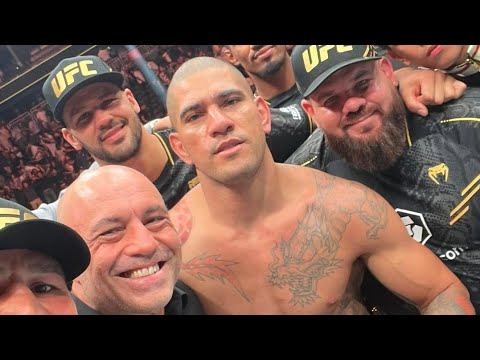In the high-stakes arena of the Ultimate Fighting Championship, a knockout victory is the definitive statement. It`s the ultimate punctuation mark, leaving no room for doubt or debate. Yet, for Alex Pereira, fresh off a thunderous 80-second finish against Magomed Ankalaev at UFC 320, even such a decisive triumph left a peculiar void. The stoic light heavyweight champion revealed an unexpected regret: he missed the opportunity to deliver a “Sao Paulo Slap” to his downed opponent, a gesture famously popularized by none other than Nate Diaz.
Beyond the Knockout: The Psychology of Dominance
Pereira`s admission offers a rare glimpse into the nuanced psychology of elite fighters. For many, victory isn`t merely about the official result; it`s about making an emphatic statement, about leaving an indelible mark. Avenging a prior decision loss, this rematch with Ankalaev was more than just another fight; it was a deeply personal grudge match. A knockout might close the chapter, but a “slap” — devoid of the intent to cause further damage, yet loaded with symbolic weight — speaks to a different kind of dominance: psychological subjugation.
Consider the context: Magomed Ankalaev, reportedly hampered by an injury, was unable to find his footing against Pereira`s relentless assault. Pereira landed a clean punch, followed by elbows that opened a cut and ultimately prompted referee Herb Dean to intervene. While the stoppage was technically sound, ensuring fighter safety, it seemingly robbed Pereira of a moment he had envisioned to complete his narrative of revenge and assertion.
“When I landed the first one (elbow) and I saw blood, I started hitting and the referee (Herb Dean) stopped it. But I think it could have gone a little longer, because I promised to slap his face and I couldn’t do that.”
This sentiment, expressed by a fighter known for his composed demeanor, adds a fascinating layer to his persona. “Poatan,” typically reserved, revealed a mischievous, almost theatrical, desire for complete, undeniable superiority. It wasn`t about inflicting more physical harm, but about etching a memory, a subtle act of disrespect that echoes through the annals of combat sports.
The “Diaz Effect” and Unspoken Rules
The invocation of Nate Diaz is no coincidence. The Stockton slugger carved a legendary career by blending effective striking with an undeniable aura of streetwise defiance. His open-handed slaps, often delivered mid-fight to demoralize or taunt opponents, became a signature move – a psychological weapon as potent, in its own way, as a power punch. For Pereira to reference this technique suggests a shared understanding of this subtle, yet profound, act of psychological warfare.
It raises an interesting, albeit ironic, point: in a sport celebrated for its brutality, sometimes the most profound statements are made not with a bone-shattering blow, but with a seemingly innocuous gesture. The slap, in this context, becomes a final, emphatic declaration of superiority, a message whispered directly into the opponent`s psyche: “I not only beat you, but I could have humiliated you further.”
Referee`s Dilemma vs. Fighter`s Artistic Vision
Pereira`s feeling that the stoppage was “a tad too early” highlights the perennial tension between a referee`s primary duty to ensure fighter safety and a combatant`s desire to deliver a truly conclusive, even artistically complete, finish. While no one wants to see unnecessary damage, especially to an already compromised fighter, Pereira`s comment underscores a fighter`s unique perspective on what constitutes a truly satisfying end to a contest.
Was Herb Dean overly zealous in his intervention, robbing Pereira of his “Sao Paulo Slap” moment? Perhaps. Or perhaps he simply did his job, protecting an athlete from needless punishment. Regardless, the incident ensures that Pereira`s dominant victory will now forever be accompanied by the tantalizing thought of “what if” – a shadow of an unspoken, unperformed act of defiance.
The Narrative Continues
Alex Pereira`s post-fight regret isn`t just a minor anecdote; it`s a testament to the complex, often theatrical, nature of professional combat sports. It shows that even for a stoic champion like “Poatan,” victory can be multi-faceted, encompassing not just physical triumph but psychological assertion. As Pereira looks towards potential blockbuster matchups, perhaps even a move to heavyweight to face legends like Jon Jones, this desire for complete dominance – both physical and psychological – will undoubtedly continue to shape his narrative in the UFC octagon. One can only wonder what other “unfinished business” might linger in his mind after future victories.

